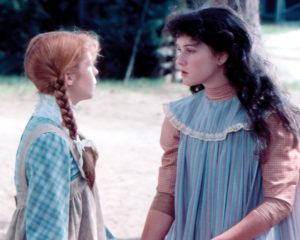Guest Post by Aubrie L. Nixon
This month’s topic speaks to my dark soul! Liars. As a writer and published author my job is to lie. I get paid to do it. I am pretty darn good at it if I do say so myself. Creating characters that lie, manipulate, cheat and steal is my specialty. However, I am not into that whole I am only one thing type of character. Because even people who lie aren’t just “liars” they are also human beings with likes, dislikes, motivations, and emotions. Creating a character that can lie and still be a good person is always fun. In my current series The Age of Endings I don’t think I have one character that is 100% truthful. The whole premise of this series is that “No one is innocent.”
It has been so much fun to come up with such a dark story where literally no one and nothing is as it seems. I am not a huge fan of heroes and heroines always being so black and white, it’s just not realistic. I love stories where people have a dark side. And I LOVE exploring the darker side of human nature. Let’s take my main character Aerona for instance, she is a cold blooded assassin. But she also loves fancy parties, food and sex. She has people in her life who she loves and people who she dislikes greatly. She literally loves blood and murder. She absolutely loves bring the one to do it. Yet, she has this softer side where she cares about people who are less fortunate. She is complex, dark, beautiful and vulnerable. If you didn’t know better though you would just see a killer. Like I stated above I LOVE stories where no one is as they seem.
I try my best to create characters who are as human and flawed as possible. Those are the kind of character that I relate to, and I think a lot of readers do too. None of us are perfect, so why would characters in a book be perfect? I certainly hope Aerona and the other characters in Secret of Souls are relatable.
My favorite character (at the moment) is Daegan. He is broody, dark, mysterious and overall a compete ass hole. I feel like Daegan is my most reliable character because while he doesn’t reveal every truth, he almost never lies. He is reliable and in my opinion the easiest “narrator” because for the most part he is straight forward and honest. He was a blast to write because I knew he backstory and why he is such a meanie. Daegan is so broody and I freaking love broody. Writing him was so easy because I feel like out if all of the character in this series he and I are the most similar.
In life, I try as hard as I can not to be untruthful. I find lying unacceptable (except for my writing) and as much fun as it is to write dishonest characters and read about them it’s not as fun in real life. I try to remember that when I write liars. Especially when the lie can ruin a relationship or can potentially lead to harm or death. I guess what I am trying to say is that liars are easy and fun to write. The people they lie to and who are effected by their lies are much harder to write.
It’s hard for me to write from the perspective of someone who has been lied to. It’s difficult of find that raw emotion of betrayal that comes with some lies. There are a few lies in this particular series that are life altering. When the truth comes out (and it ALWAYS does) the consequences are monumental. That is the not so fun part, having a character face those consequences. It can often be the end of a characters relationship, which I find heartbreaking. It also forces characters to potentially change their ways. I say potentially because they don’t always change. It is always interesting to me to see where characters that are deemed “dark, liar, broody etc.” go. Or if they change at all.
What are some of your favorite characters? Are there any “liars” that you love? Or do you only love the truthful type? Do you think there is ever a time where lying is acceptable? Why or why not.
-Aubrie
 Aubrie is 24 years young. She plays mom to a cutest demon topside, and is married to the hottest man in the Air Force. When she isn’t writing she is daydreaming about hot brooding anti-heroes and sassy heroines. She loves Dragon Age, rewatching Game of Thrones and reading all things fantasy. She runs a local YA/NA bookclub with 3 chapters, and over 200 members. Her favorite thing to do is eat, and her thighs thank her graciously for it. If she could have dinner with anyone living or dead it would be Alan Rickman because his voice is the sexiest sound on earth. He could read the dictionary and she would be enthralled. Her current mission in life is to collect creepy taxidermy animals because she finds them cute and hilarious. She resides just outside of Washington DC.
Aubrie is 24 years young. She plays mom to a cutest demon topside, and is married to the hottest man in the Air Force. When she isn’t writing she is daydreaming about hot brooding anti-heroes and sassy heroines. She loves Dragon Age, rewatching Game of Thrones and reading all things fantasy. She runs a local YA/NA bookclub with 3 chapters, and over 200 members. Her favorite thing to do is eat, and her thighs thank her graciously for it. If she could have dinner with anyone living or dead it would be Alan Rickman because his voice is the sexiest sound on earth. He could read the dictionary and she would be enthralled. Her current mission in life is to collect creepy taxidermy animals because she finds them cute and hilarious. She resides just outside of Washington DC.





